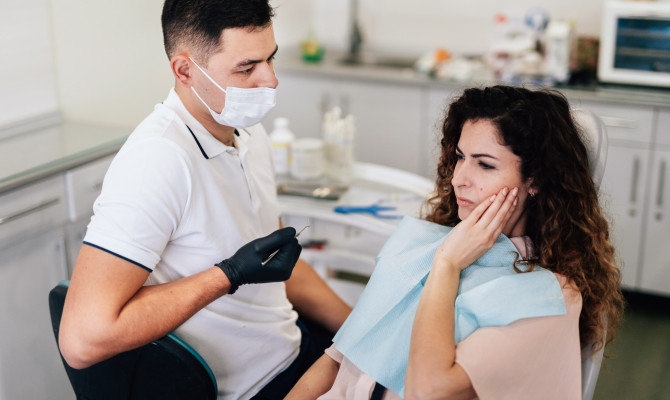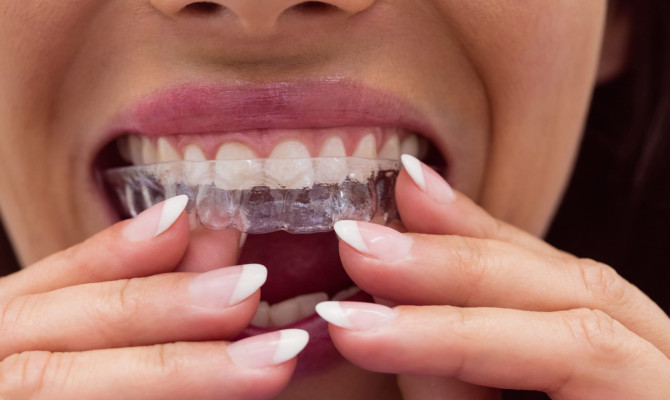Wisdom teeth: What do I need to Know?

- Wisdom Teeth
- 22 Aug 2023
Overview
What is Wisdom teeth?
The final set of molars in the back of the mouth is wisdom teeth, sometimes known as third molars. These teeth often appear between the ages of 17 and 21, in the late stages of adolescence or early adulthood.1Overview| Researched based study from Mouthhealthy.org Due to their emergence at a time when people are thought to have reached adulthood and wisdom, they have been given the label wisdom teeth. Modern dentistry has revealed the possible issues that might arise with wisdom teeth despite their historical significance, necessitating knowledge, and appropriate care.
The functions, significance, connected issues, eruption indicators, difficulties, and recommended care for wisdom teeth are all covered in this article.

Location
- The majority of people have four wisdom teeth, with one in every corner of the mouth.
- These four molars are known as the top right, upper left, lower right, and lower left third molars based on where they are located.
- They are the final teeth that erupt in the mouth of an adult.3Overview| Researched based study from Dental.washington.edu
- They may be difficult to reach and clean and are, therefore, more prone to gum disease, infection, and other dental problems, including decay.
Functions
What are the functions of Wisdom teeth?
- These teeth were essential in the past since most of the food consumed by humans at the time was coarse and difficult to chew.
- The human jaw gradually shrunk due to the invention of cooking and improvements in food processing, making it difficult for wisdom teeth to erupt correctly.2Functions| Researched based study from Nlm.nih.gov
- In the modern oral cavity, wisdom teeth are not very useful.
- Due to evolutionary changes, most humans no longer use these teeth for chewing or feeding, and many healthcare providers see them as vestigial.
- Therefore, wisdom teeth might cause issues when they try to erupt, potentially resulting in oral health issues.
Symptoms

Sign & Symptoms of Wisdom tooth Eruption
Several apparent signs and symptoms can be caused by wisdom teeth eruption, including:
- Pain at the back of the mouth
- Difficulty in fully opening the mouth
- Jaw pain or stiffness 4Symptoms| Researched based study from Myoms.org
- Ear or head pain
- Facial pain
- Bad breath
How to Know if You Have Wisdom Teeth?
- Your wisdom teeth may have erupted if you’re an adult around 21.
- You may tell if your molars have emerged by counting the molars on each side of your mouth.
- A person with all of their wisdom teeth erupted will have three molars on each side of the mouth: higher right end, upper left back, lower right end, and lower left side.
- It is crucial to see a dentist and get dental X-rays taken to determine whether or not you have wisdom teeth, as they can show the presence and position of wisdom teeth.5Symptoms| Researched based study from Nlm.nih.gov
- Dentists can keep an eye on their growth and, if problems occur, advise the best course of action.
Benefits
What are the benefits of keeping Wisdom teeth?
While many people opt to have their wisdom teeth removed because of the possible risks, keeping them if they are healthy and properly positioned may have some advantages as well:
- It helps with chewing
- Maintains bone density
- Supports adjacent teeth
- Replaces natural teeth
- Genetic significance
Helps with chewing
- Some people may benefit from more effective eating if their wisdom teeth are healthy and appropriately positioned.
- For those who have experienced tooth loss or significant damage on their other molars, this may be especially crucial.
Maintains bone density
- It’s possible that keeping wisdom teeth will help keep the jaw’s bone density.
- There may be a small amount of bone loss in the region after wisdom teeth are removed.6Benefits| Researched based study from Nlm.nih.gov
Supports adjacent teeth
- Wisdom teeth can serve as a natural insulator and support for neighboring teeth, preserving the integrity and alignment of the complete dental arch.
Replaces natural teeth
- When opposed to dental implants or other prostheses, wisdom teeth provide a more natural approach for replacing molars that may be lost or damaged later in life.7Benefits| Researched based study from Nlm.nih.gov
Genetic significance
- According to specific evolutionary theories, wisdom teeth are a genetic trait unique to humans; therefore, keeping them would make sense in maintaining evolutionary continuity.
It is crucial to realize that these potential advantages may only apply to some and are only sometimes universal.
Complications
Complications
The following complications may arise due to Wisdom teeth
- Impaction
- Crowding of teeth
- Gum infection
- Dental cavities
- Abscess formation
- Cysts and tumors
Impaction
- Because wisdom teeth frequently lack adequate room to come out normally, impaction results.
- If impacted wisdom teeth partially protrude from beneath the gum line or hit the root of the second molar, they may hurt and be uncomfortable.8Complications| Researched based study from Mayoclinic.org
Crowding
- The eruption of wisdom teeth might throw existing tooth alignment off, leading to crowding and misalignment.9Complications| Researched based study from Nlm.nih.gov
Gum infection
- Wisdom teeth are difficult to clean properly since they are in the back of the mouth, which increases the risk of gum disease.
- Pericoronitis can occur when the gums above partially erupted wisdom teeth get infected, resulting in redness, swelling, and pain. 10Complications| Researched based study from Nlm.nih.gov
Dental cavities
- Because of their location and difficulties in cleaning, wisdom teeth are particularly vulnerable to decay & cavities.
Abscess formation
- An infection may cause a painful abscess to form around wisdom teeth and may cause it to bleed pus.
Cysts and Tumors
- Cysts and tumors could form around the impacted wisdom teeth and may damage the neighboring teeth and jawbone.11Complications| Researched based study from Nlm.nih.gov
Care
Caring for Wisdom Teeth
Regular oral hygiene routines and development tracking are required for wisdom teeth maintenance. Here are some crucial recommendations:
- Brushing and flossing – brushing should be done twice daily using fluoride toothpaste and flossing once daily. The back molars should receive additional attention when using the floss. 12Care| Researched based study from Clevelandclinic.org
- Oral Rinses – To prevent bacterial growth and keep your mouth healthy, use an antiseptic mouthwash.
- Soft Diet – Follow a soft diet to reduce discomfort during the early phases of wisdom teeth eruption.
- Scheduling routine dental examinations – will allow you to keep an eye on the growth of your wisdom teeth and handle any potential problems.
- Pain management – Over-the-counter painkillers can reduce pain and inflammation During the eruption phase. However, before taking any medication for tooth ache, consult with a dentist.
Bottom Line
The Bottom Line
Third molars, sometimes known as wisdom teeth, are not very useful in modern, highly evolved human diets. As a result, when they try to erupt in the mouth, they frequently cause issues. In the end, the choice of whether to keep or remove the wisdom teeth should be based on a comprehensive examination by a trained dentist or oral surgeon, taking into account unique factors like size of the jaw, tooth alignment, possible risks of impaction or crowding, and the general health of the individual’s mouth. The final decision should depend on the dentist’s recommendations as well as the individual’s needs and preferences.
Any feedback on this article?
 This Articles content was accurate
This Articles content was accurate Very Informative Article
Very Informative Article I have a question or a comment
I have a question or a comment
 This article contains inaccurate content
This article contains inaccurate content This article was not helpful
This article was not helpful I have a question or a comment
I have a question or a comment
We appreciate your helpful feedback!
Checkout our social pages
References
-
American Dental Association
Wisdom Teeth | Overview
-
National Library of Medicine
Wisdom teeth: Overview | Functions
-
UW School of Dentistry
Evidence-Based Management of Third Molar Teeth | Overview
-
American Association of Oral and Maxillofacial Surgeons
Wisdom Teeth Symptoms and Signs to Remove Them | Symptoms
-
National Library of Medicine
Radiographic Position of Impacted Mandibular Third Molars and Their Association with Pathological Conditions | Symptoms
-
National Library of Medicine
Alveolar ridge resorption after tooth extraction: A consequence of a fundamental principle of bone physiology | Benefits
-
National Library of Medicine
Spontaneous third-molar eruption after second-molar extraction in orthodontic patients | Benefits
-
Mayo Clinic
Impacted wisdom teeth | Complications
-
National Library of Medicine
Role of third molars in orthodontics | Complications
-
National Library of Medicine
Pericoronitis | Complications
-
National Library of Medicine
The incidence of cysts and tumors associated with impacted third molars | Complications
-
Cleveland Clinic
Wisdom Teeth | Care



































